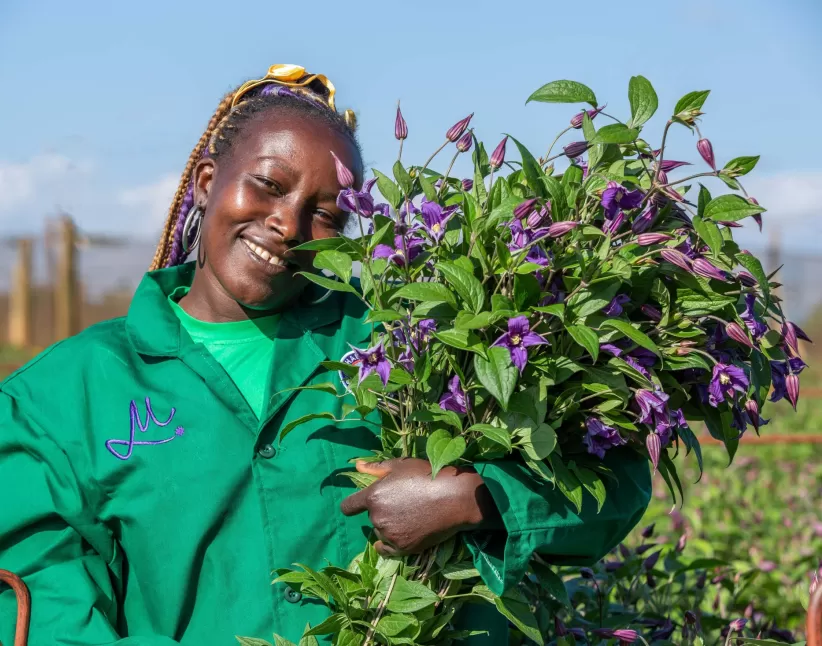
t's everywhere: ‘sustainability’. A hot topic that excites some and overwhelms others. It’s broad, complex, yet undeniably important.
There is a clear need for more knowledge about sustainability. What can we do to address this? First and foremost, it’s essential to share more information, engage in discussions, and provide clear examples that both florists and consumers can use. Fortunately, this is happening more and more. Additionally, it’s important to break down the complex concept of sustainability into manageable pieces. By fitting these puzzle pieces together, we can eventually form the full picture.
One such piece is certification. It might seem like dry subject matter at first glance, but when you dive deeper, it becomes truly fascinating. Let’s take a closer look…
Sustainability Standards
There are countless certifications, with one of the best-known being FairTrade, which focuses on fair working conditions among other aspects. However, there are many others. To help make sense of this “forest of certifications,” the floriculture sector established the Floriculture Sustainability Initiative (FSI). This global network promotes sustainable practices and environmental and social responsibility within the flower supply chain. FSI aims for 90% responsibly grown and traded flowers and plants by 2025.

It uses a “basket of standards” consisting of 16 sustainability standards. These focus on Good Agricultural Practices (GAP), environmental and social responsibility, or a combination of these areas.
Marginpar joined FSI in its early years, embracing sustainability as a core value.
Our flower farms and certifications
Marginpar has 17 farms across four countries: Kenya, Ethiopia (own farms), Tanzania, and Zimbabwe (partner farms). To ensure FSI compliance and sustainable practices, all our farms are certified across three areas: Environmental, Social, and GAP. We use the term ESG (Environmental, Social, and Governance) to refer to the different aspects of sustainability.
Not all certifications are the same. For example, the MPS label is divided into three parts. MPS-ABC for the Environment component (where A+ is the highest attainable); MPS SQ for the social component and MPS GAP for sustainable and safe farming practices. In comparison, the Kenya Flower Council label (KFC) has combined all three of these components into one certificate.
It might sound complex, but stay with us...
Below is an overview of our flower farms and their certifications:

- Kenya: 7 flower farms – KFC Silver Label
- Ethiopia: 3 flower farms – MPS-ABC (score A) & MPS-SQ & GlobalG.A.P.
- Tanzania: 3 partner farms– MPS-ABC (score A), MPS-GAP & MPS-SQ
- Zimbabwe: 4 partner farms – partly MPS certified and partly still in the certification process
What does certification cover?
As mentioned earlier, certifications focus on three main areas: Good Agricultural Practices, Environmental, and Social Responsibility.
When diving deeper, audits assess additional aspects such as HR policies, governance, health and safety, nature conservation, production methods, fertilisers, and pest management.
Certification process
Certifications are typically valid for a year. This means farms undergo annual audits, often spanning several days. Let’s take the KFC Silver label as an example to illustrate the process.
The audit consists of:
- Interviews with employees
- Facility inspections
- Review of relevant documents

Interview checklists may include questions about HR policies, parental leave, working hours, and holidays. Facility inspections ensure compliance with technical specifications. Document reviews verify adherence to - among others - hygiene and safety standards, integrated pest management practices, and spray and fertiliser records.

After the audit, the farm receives a score and has 28 days to address any non-conformities. Upon passing, the farm is awarded the KFC Silver label. This process is repeated annually, with the possibility of unannounced inspections in between.
Sound simple? We have deliberately kept it concise because the whole process contains so many details and requirements that most readers wouldn’t reach the end of the article otherwise. For instance, the ‘Good Agricultural Practices’ section alone consists of 11 pages of checkpoints...
Continuous improvement
Sustainability is a journey of continuous improvement. On our farms, we strive to make incremental progress every day. Certification supports us in this. The information and data we gain from the process are invaluable, providing new insights and helping us to keep improving—resulting in the most beautiful flowers.
Want to learn more? Stay connected via our LinkedIn page for regular updates or subscribe to the monthly Marginpar newsletter.



